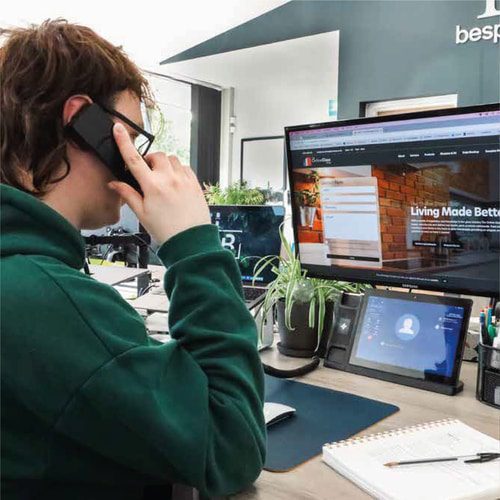
How Has Google News Been Revamped?
Do you ever feel like you’re getting the same type of news everyday? If so, you could be experiencing a “filter bubble”. This phrase means that you could be living in a state of “intellectual isolation” caused by personalised search results. In short, you could be receiving lots of news about a particular topic, for instance – because you’ve clicked on stories about it before.
Despite this occurrence, Google News is still a personalised news aggregator. So it still gives you main stories, alongside articles that are based on your previous interests. The presentation of each story offers you a range of publications to choose from – so you can see a story from different perspectives.
The service was revamped in May 2018, and in this blog from Blue Whale Media, the Warrington web design agency, we’ll look at how it has changed and what this means for news and journalism in general.
What Has Changed With Google News?
The relaunch of Google News comes with some significant developments. They are as follows….
- It incorporates a wider selection of sources, including magazine articles and videos.
- It allows users to subscribe to online newspapers, which has been seen as a bid to improve relations with publishers.
- It replaces Google’s Newsstand and its News and Weather app on mobile and desktop.
- It now seems to have more in common with Apple’s native news app.
Why Is News So Important To Google?
“News is core to our mission,” said Google’s Chief Executive Sundar Pichai at the company’s annual I/O conference. “We want to give users quality sources that they trust, but we want to build a product that works for publishers. Above all, we want to make sure we’re giving them deeper insight and a fuller perspective about any topic they’re interested in.”
In March 2018, Google announced that it will invest $300m in helping news publishers grow their businesses and fight fake news. It said that journalism was “under pressure” in the digital age, but also maintained that it had a “shared mission” with publishers and wanted them to succeed.
What Do The Publishers Think Of Google?
At our web design Warrington based agency we keep a close eye on technology news. We notice that one contentious area is the power relationship between the online giants and the news publishers.
The advertising spend on the web, for instance, highlights an unequal struggle. Google and Facebook secure between 50% and 80% of all the advertising spent on the web, while news publications can’t compete with them in comparison.
And by 2020, Google and Facebook are expected to take 71% of the money spent on digital advertising in the UK, according to research from management consulting company OC&C.
To combat this, the trade magazine Press Gazette launched a Duopoly campaign last year. The publication said it wants to fight the “devastating” effects Facebook and Google are having on the newspaper industry and “society in general”. It looks like the debate around this issue is destined to continue for some time.
This blog comes from the Warrington web design agency Blue Whale Media. We specialise in creating websites that are highly responsive, functional and effective.
Please select a valid form.





